Kawasaki CO2 Capture: KCC
- Development of KHI’s CO2 capture technology
- Demonstration Projects
- Progress of Large-Scale CO2 capture business
Development of KHI’s CO2 capture technology
Development Timeline
Development of KHI’s CO2 Capture Technology Using Solid Sorbent (Kawasaki CO2 Capture: KCC)
- Initially developed as a technology to remove CO2 from exhaled breath in enclosed spaces.
- Since the 2000s, development began to apply this technology for removing CO2 from exhaust gases as a measure against global warming.
- Various demonstration tests have been conducted since 2015, and development of DAC (Direct Air Capture) started in 2019.
- From 2025 onwards, the aim is to apply this technology to various CO2 emission sources.
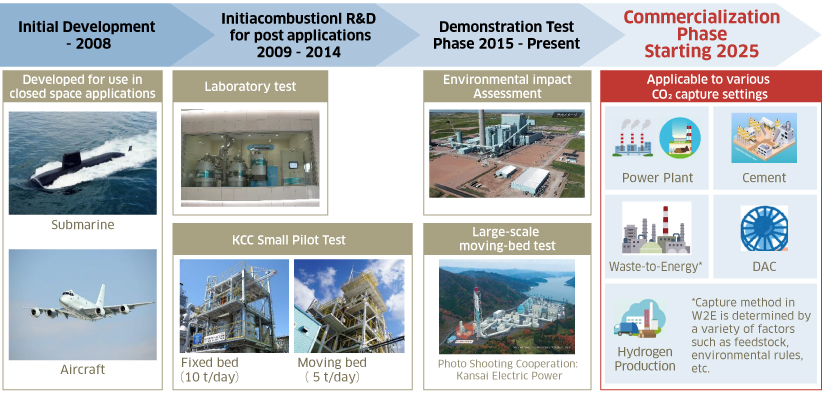
KCC (Kawasaki CO2 Capture) Process
- Originally designed to control CO2 concentrations in closed spaces, such as submarines and aircraft.
- By using a newly developed solid sorbent with amine supported on a porous material, CO2 capture is acheived with less energy consumption than conventional methods.
- For sorbent regeneration waste heat (100°C or less) can be used.
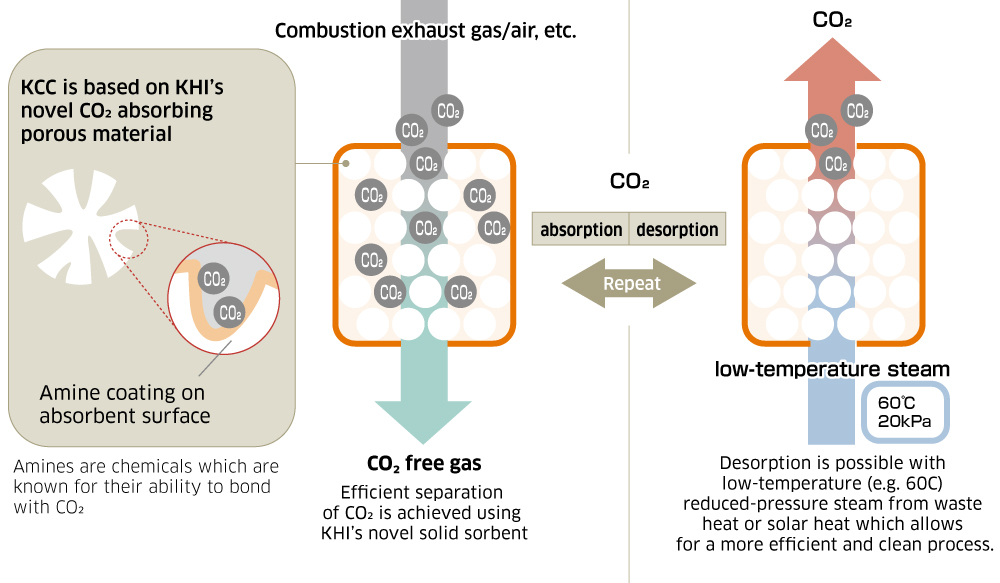
KCC Configurations
| Fixed-bed system | Moving-bed system | |
|---|---|---|
| System Overview |
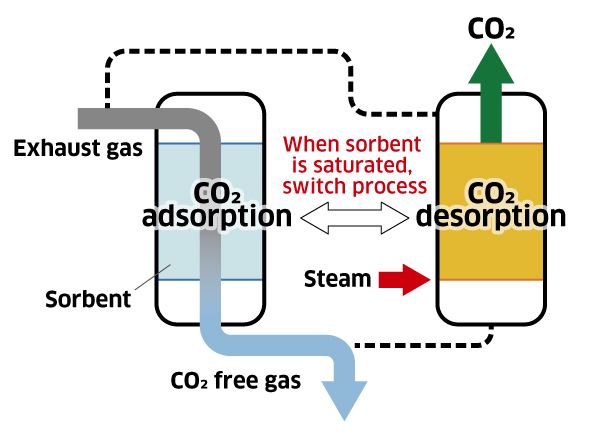 A system where the solid sorbent remains stationary. Exhaust gases and steam are alternately supplied to perform batch CO2 adsorption and desorption |
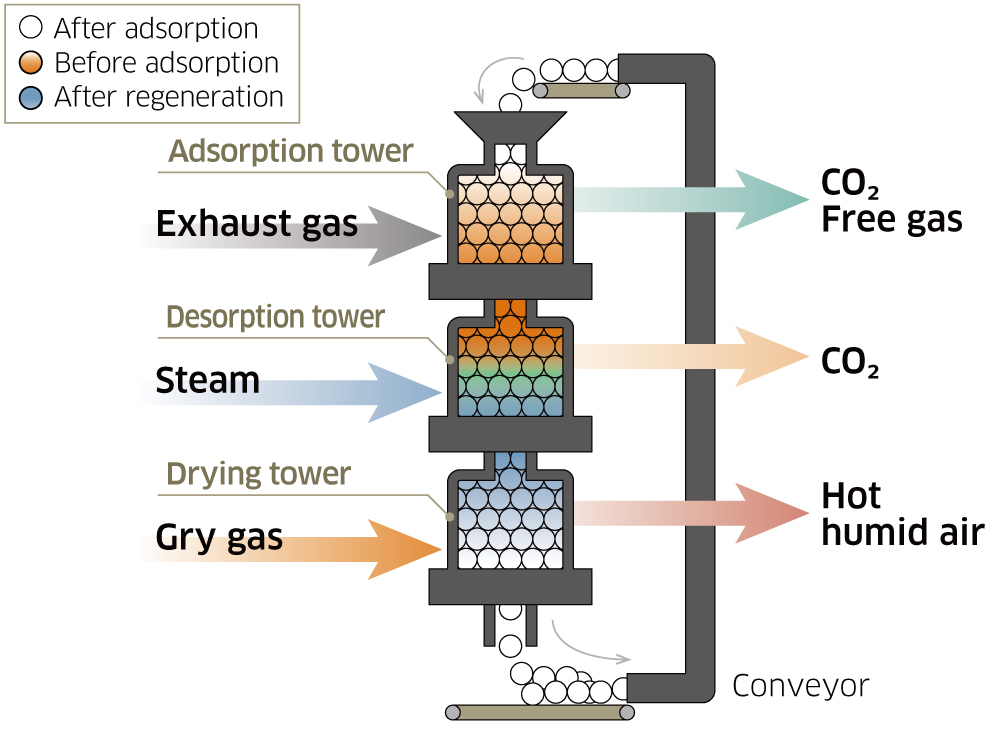 A system where the solid sorbent circulates through adsorption, desorption, and drying towers, continuously performing CO2 adsorption and desorption. |
| Pilot test plant |
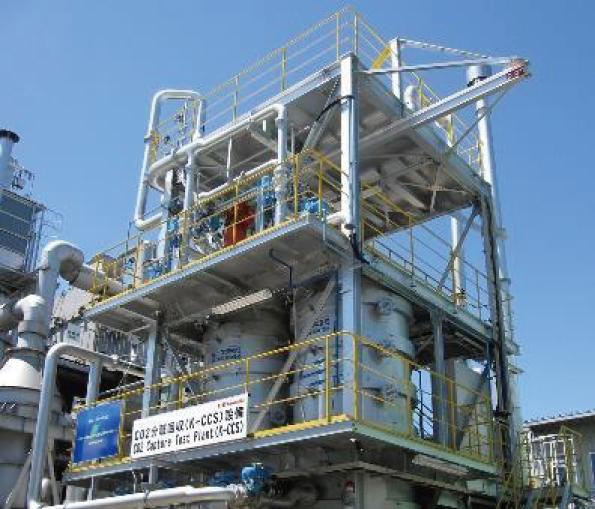
|
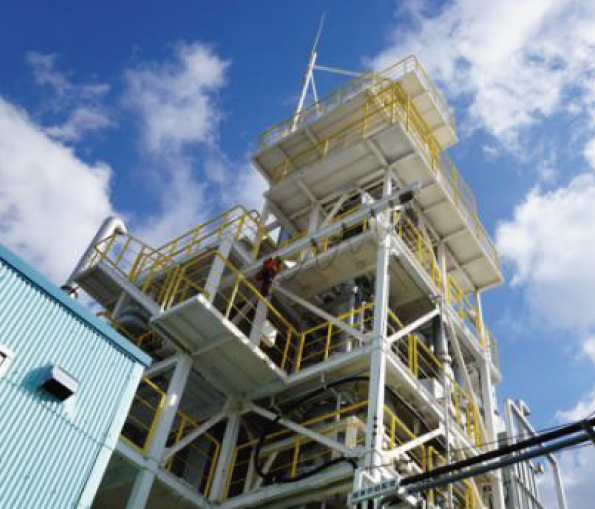
|
KCC pilot test plant
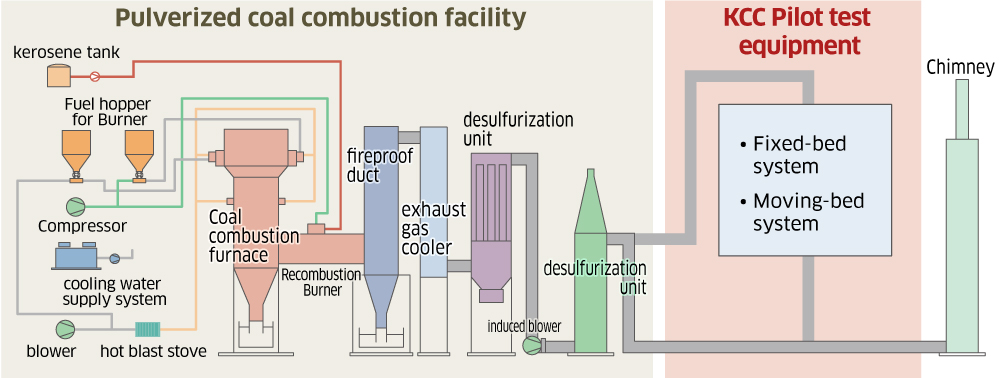
Features of the KCC Fixed-bed system
- Switching between adsorption, desorption, and drying in one column (batch processing)
- The system is simple and easy to deploy for various applications.
Appearance
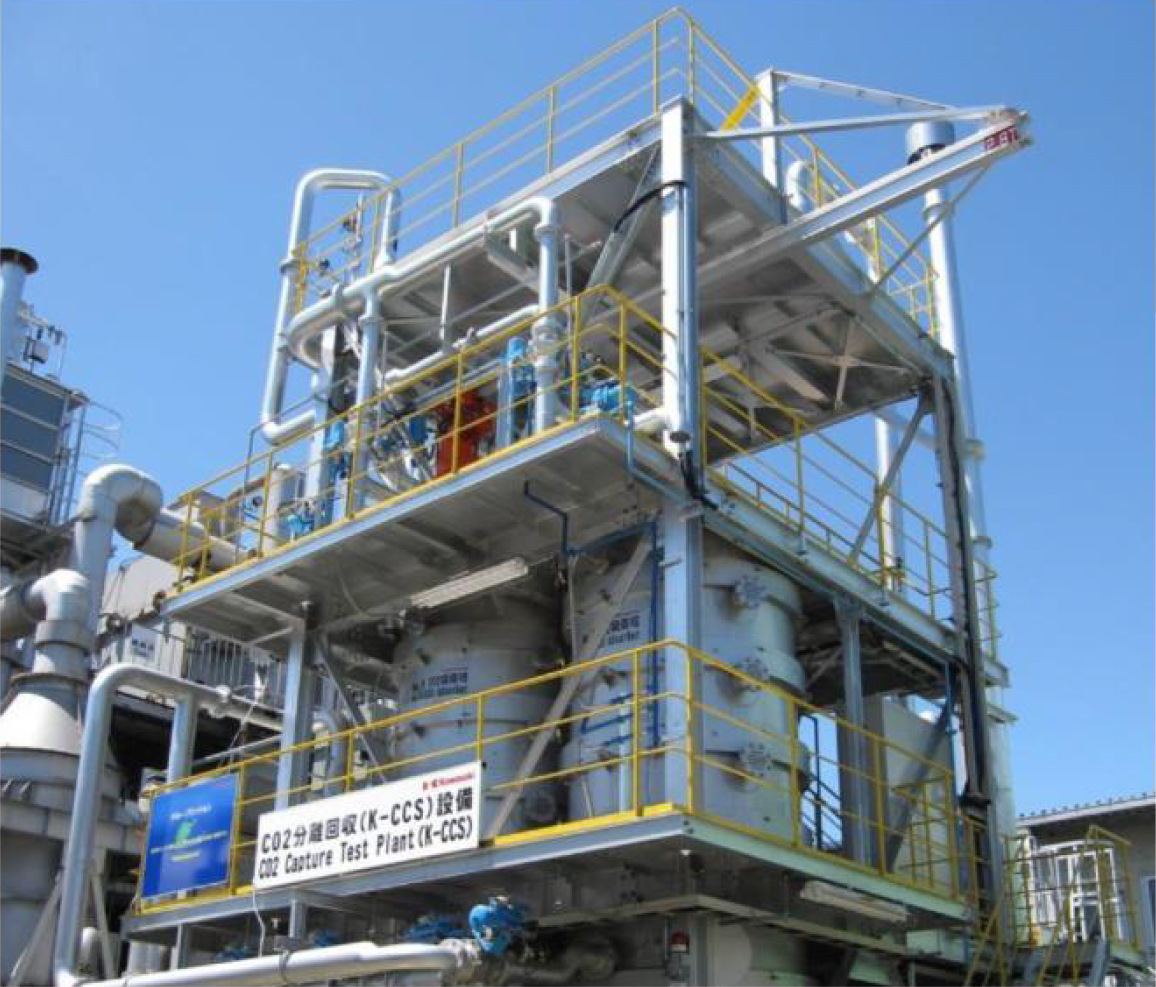
Specifications
|
CO2 capture rate:10 ton-CO2/day equipment size 6.5 m (W) x 7.5 m (D) x 12 m (H) |
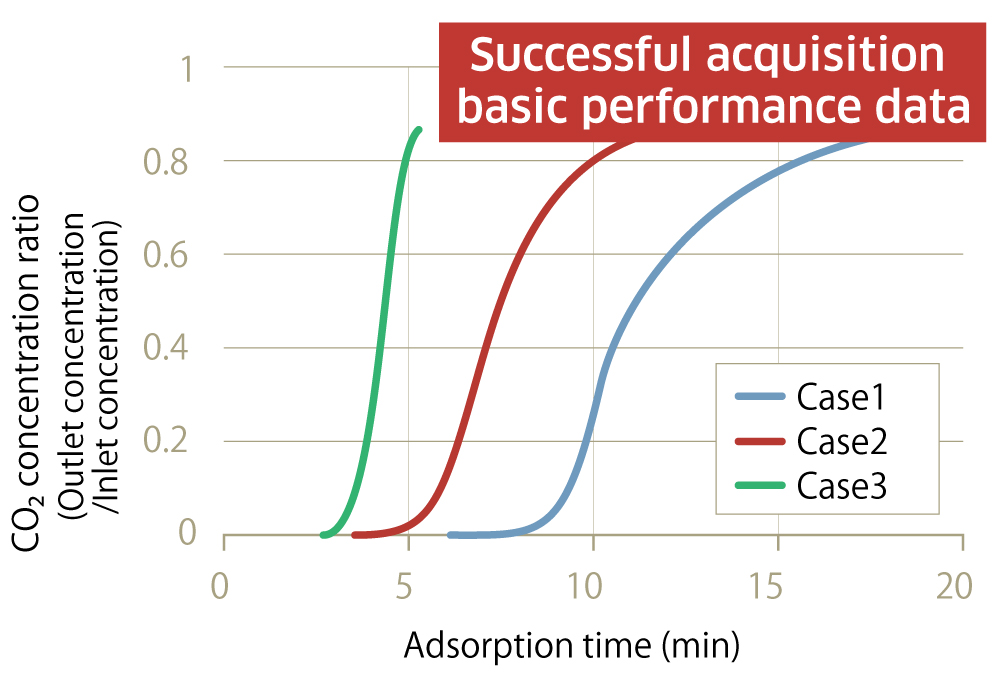
Features of the KCC Moving-bed System
- Composed of three towers: adsorption tower, desorption tower, and drying tower
- Continuous recovery allows the system to be used for larger-scale applicaitons
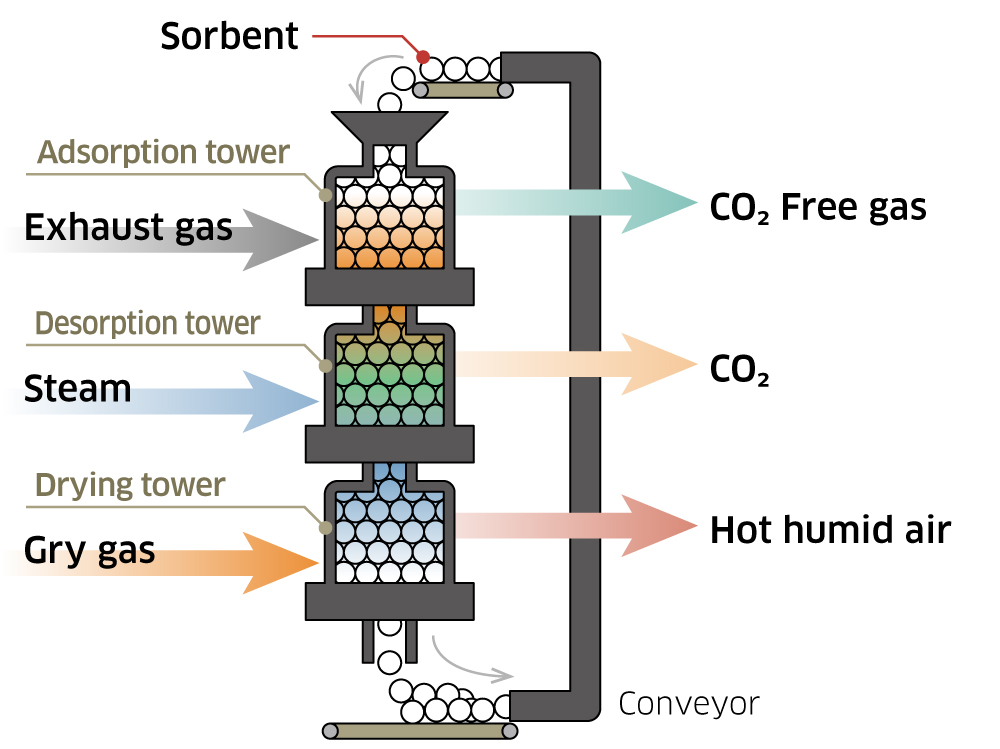
Appearance
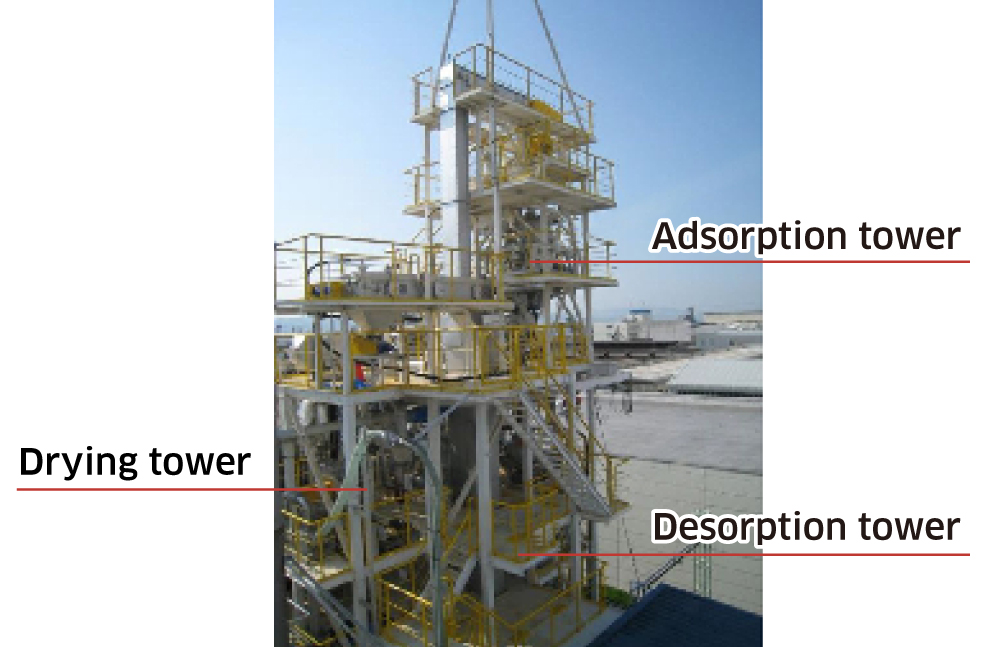
|
CO2 capture amount:5 ton-CO2/day Hight of Equipment:Approx. 20 m |
Demonstration Projects
1. Large Pilot Test of Advanced Carbon Dioxide capture process for Coal Combustion Flue Gas
Conducted by: Kawasaki Heavy Industries, Ltd., Research Institute of
Innovative Technology for the Earth(RITE)
Cooperation: Kansai Electric Power
Project Host: KHI (KCC moving bed) 40 ton-CO2/d test plant using
solid sorbent developed by RITE
Purpose: CO2 capture test from actual coal combustion flue gas
- This project is funded by New Energy and Industrial Technology Development Organization(NEDO).
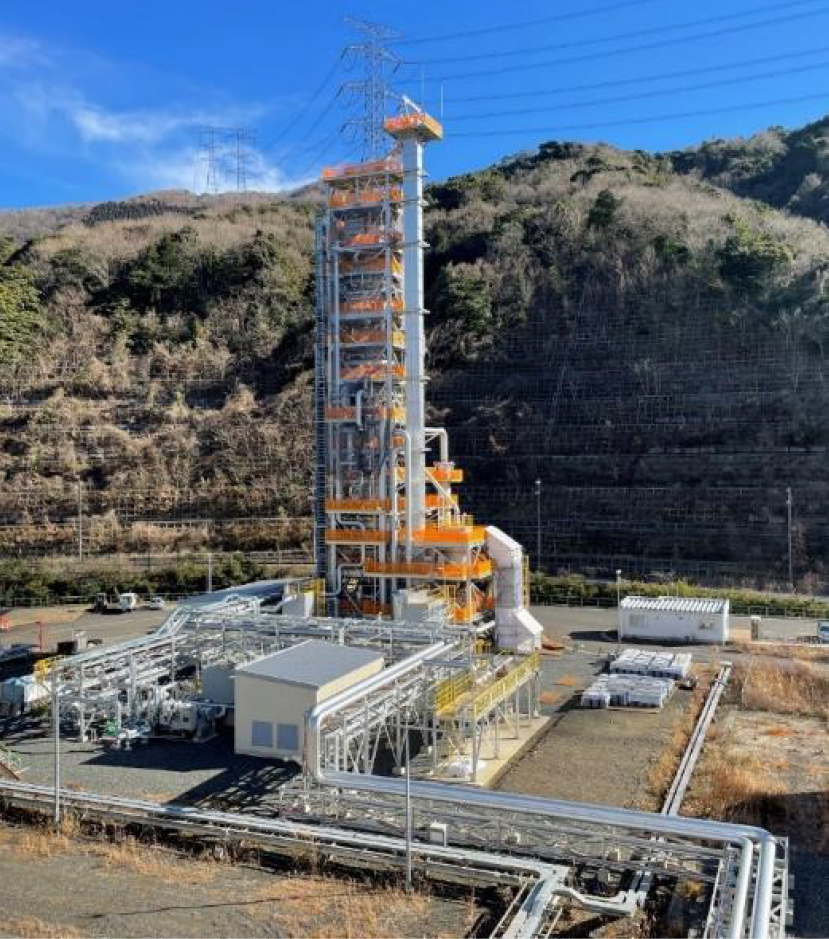
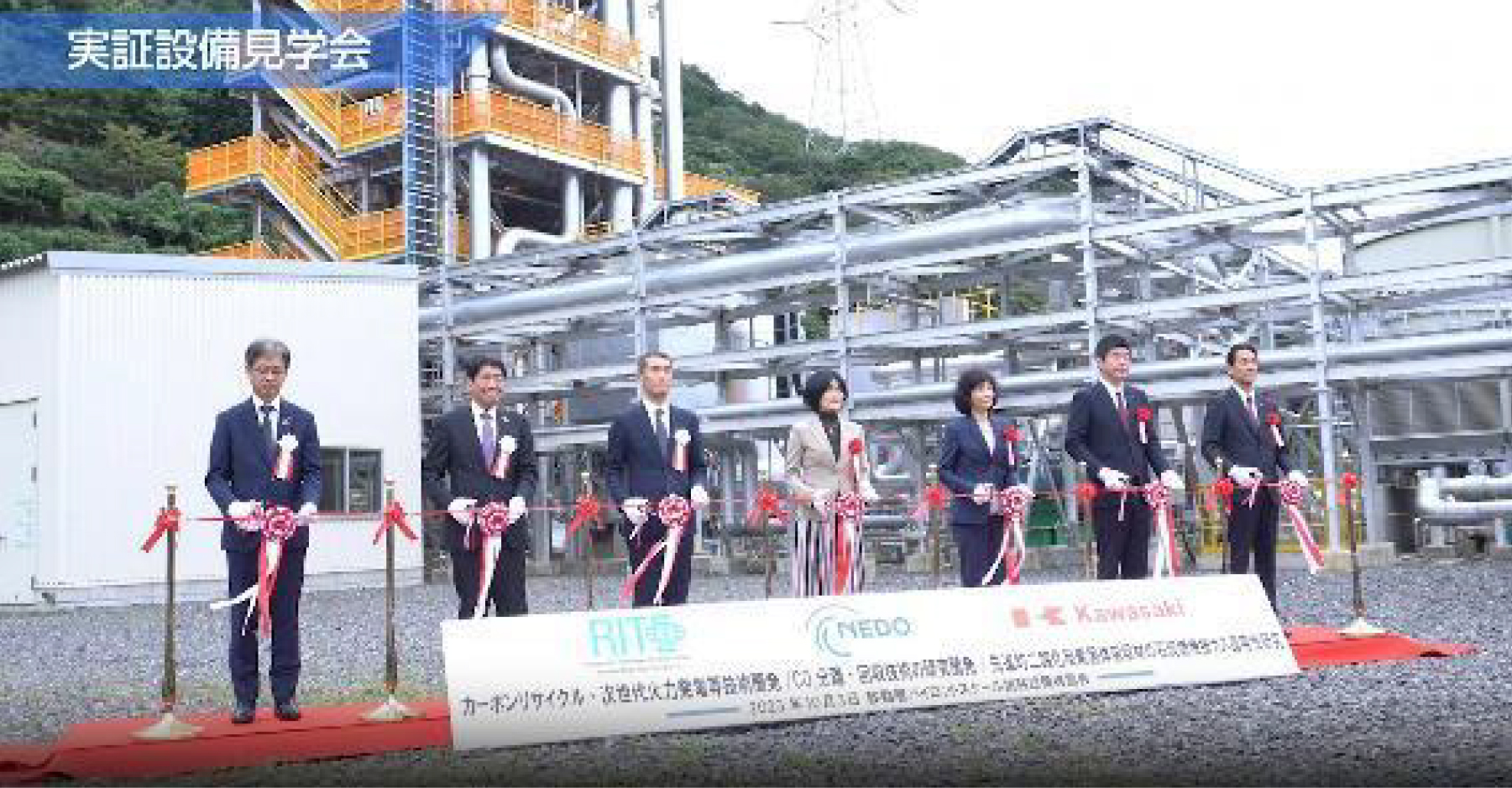
Construction Landscape

2. Environmental Impact Assessment Test in Wyoming, USA
- CO2 emission source:Dry Fork Station, a coal-fired power plant in Gillette, Wyoming, USA
- CO2 concentration in flue gas:13 Vol%
- This test plant was installed at the Integrated Test Center in Wyoming, USA to assess enviromental impact.
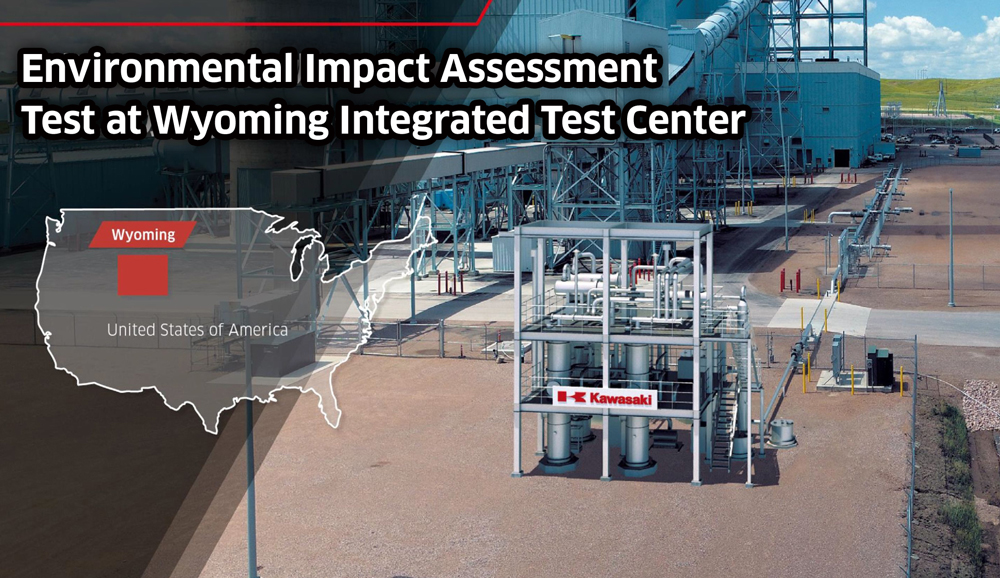
Project Leader : Japan Carbon Frontier Organization
Joint Implementation Partner : Kawasaki Heavy Industries, Ltd.
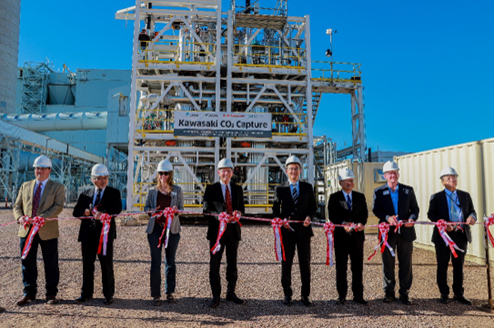
Environmental impact assessment test for evaluation of emission risk of amine and its altered substances to the atmosphere due to volatilization and degradation by miror constituerts of exhaust gas.
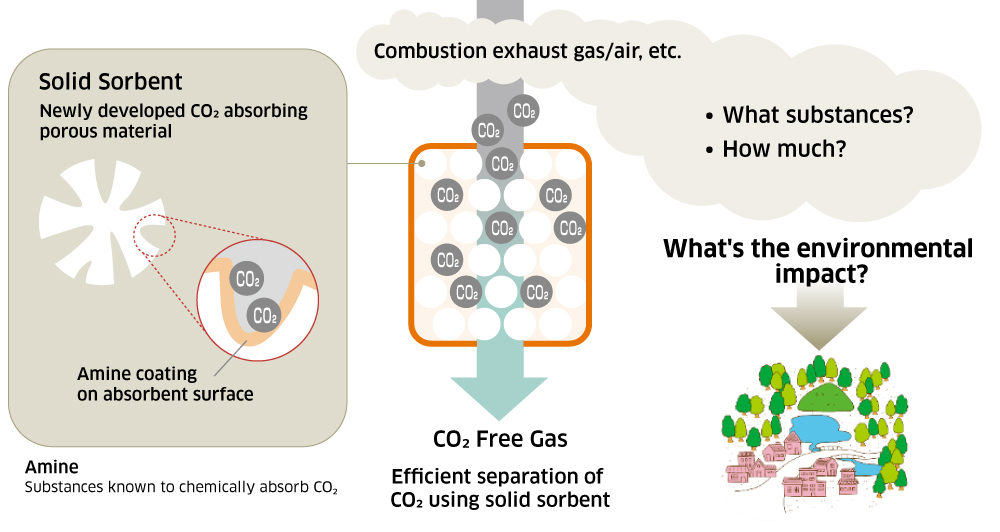
For environmental monitoring, we are measuring and evaluating the atmospheric composition at the following sites before, during and after the demonstration test.
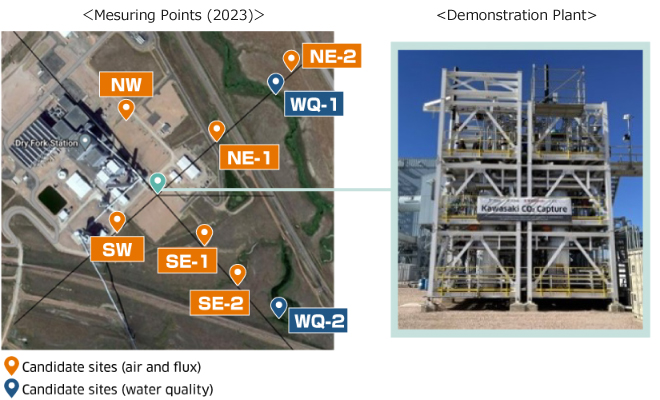
3. Demonstration test at a waste treatment facility
Japan's first demonstration test to capture CO2 from exhaust gas using a solid sorbent method at a waste treatment facility
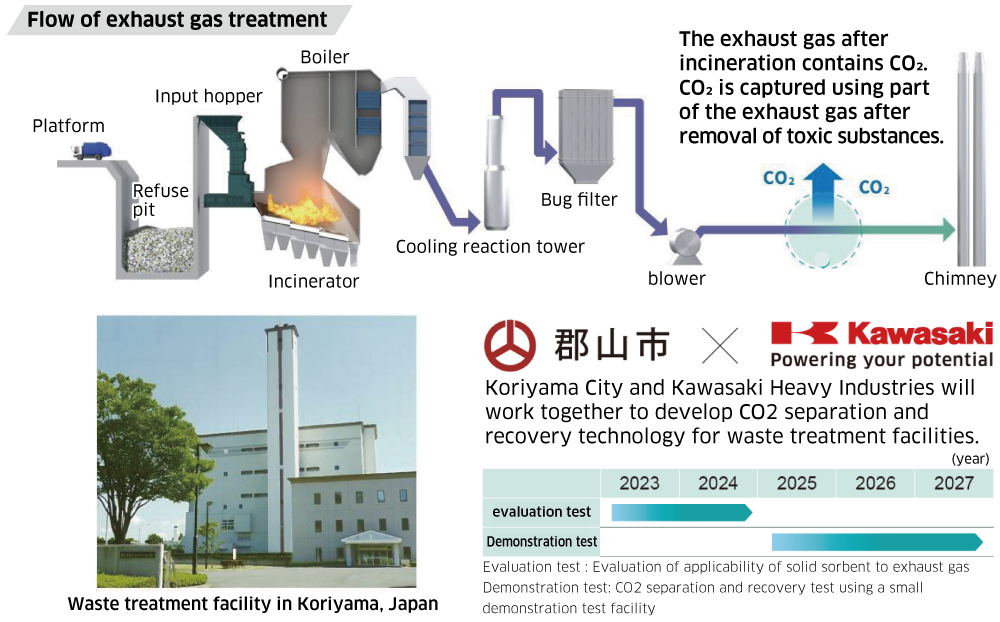
4. KCC for DAC Bench-scale demonstration
KCC is based on removing CO2 from ambient air and has been in development for over 40 years.
Our test system achieved continuous capture of CO2 in the air for more than 1,000 hours
LCA evaluation of the CO2 capture process was carried out based on data from a small test equipment. Negative emissions are achieved by using renewable electricity.
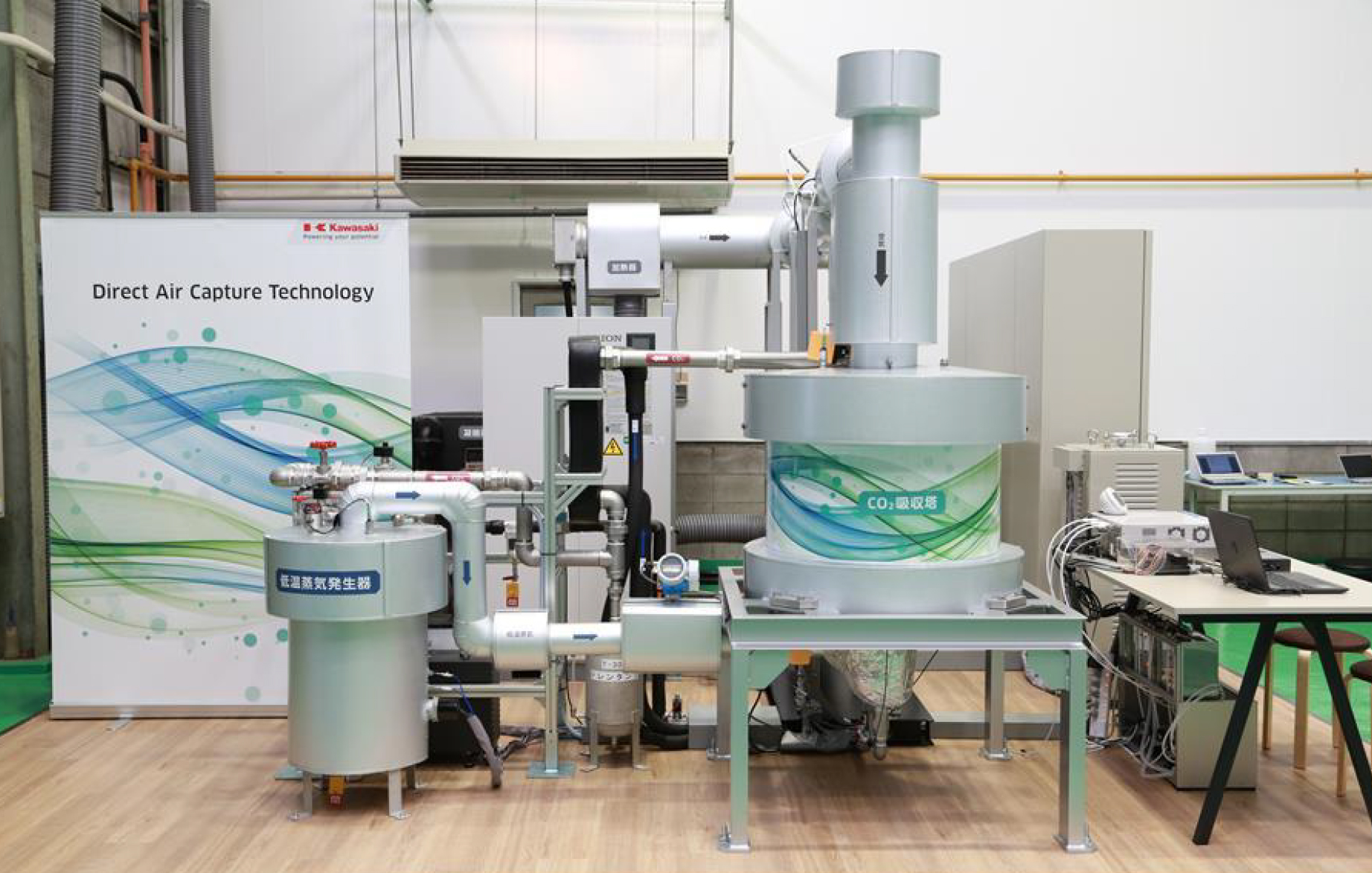
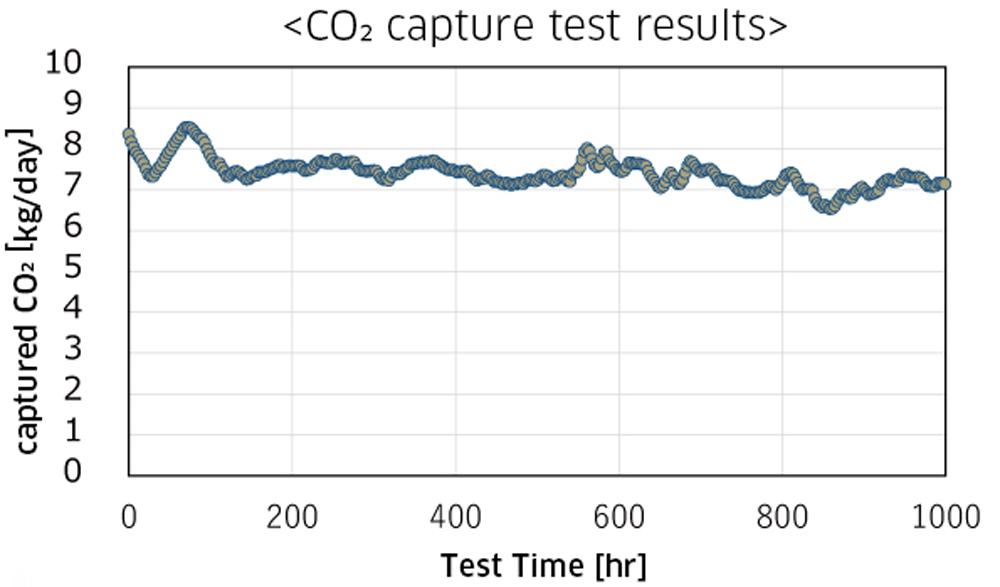
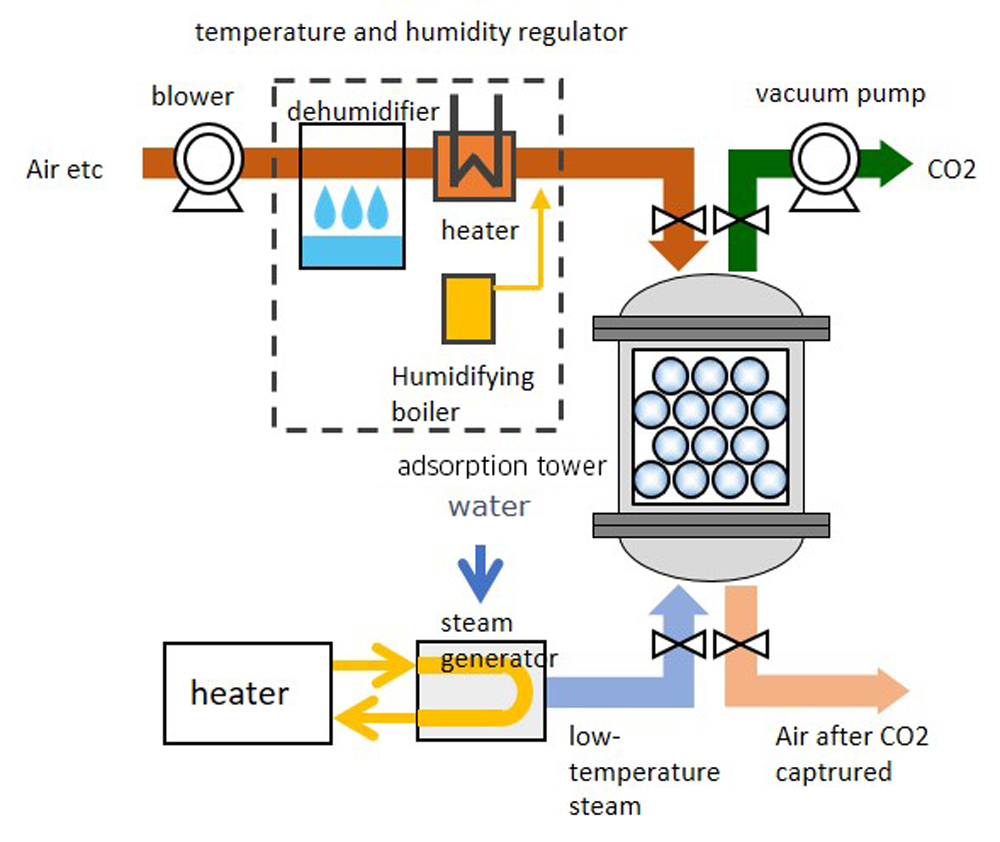
Progress of Large-Scale CO2 capture business
Global CO2 balance and the need for DAC
-
Atmospheric CO2 is increasing at a rate of 20 billion tons per
year.
Expected to reach the 2050 level of the 1.5°C Scenario in another 10 years.
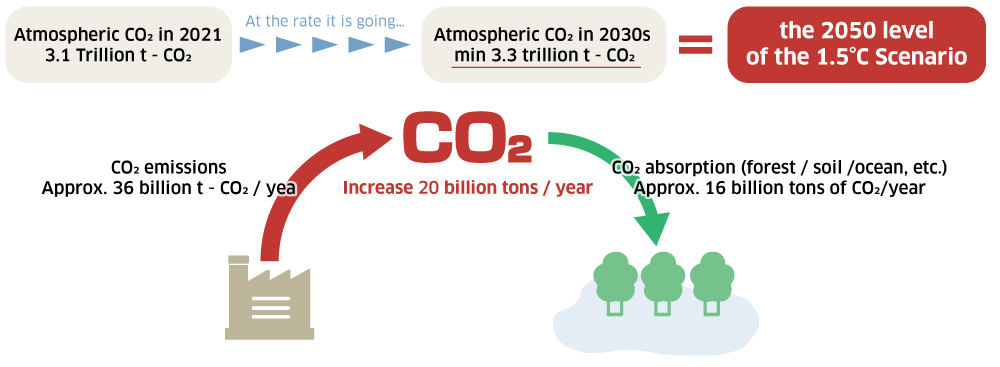
- Even if CO2 emissions from fossil fuels are further reduced in the future, the 1.5°C scenario will not be met, so negative emissions from DAC are necessary
- Source: Friedlingstein et.al (2022), Global Carbon Budget 2022,IEA (2021), Net Zero by 2050: A Roadmap for the Global Energy Sector,Met Office (2018), How much CO2 at 1.5°C and 2°C?,Our World in Data, CO2 and Greenhouse Gas Emissions,
Need for DAC
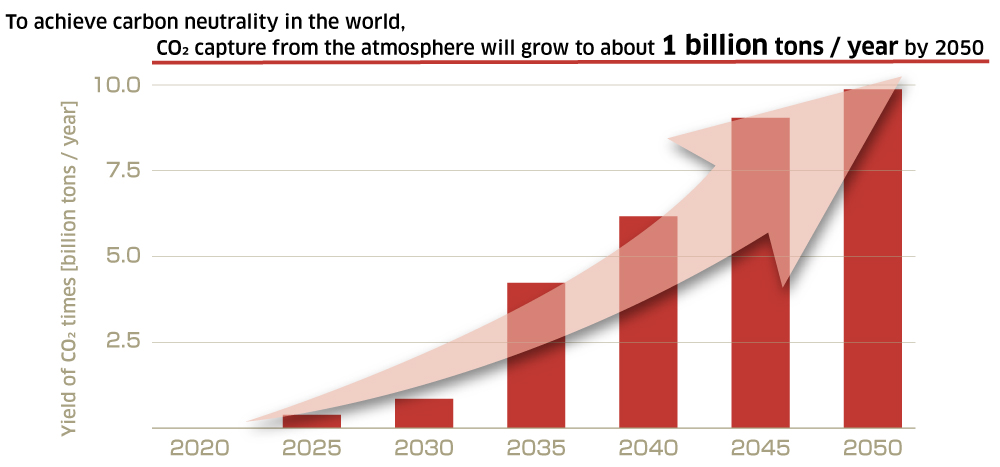
* Created by KHI based on IEA "Net 0 by 2050 A Roadmap for the Global Energy Sector"
DAC progress areas
CO2 capture from the atmosphere has high CO2 storage potential,proceeding in areas where renewable energy is readily available
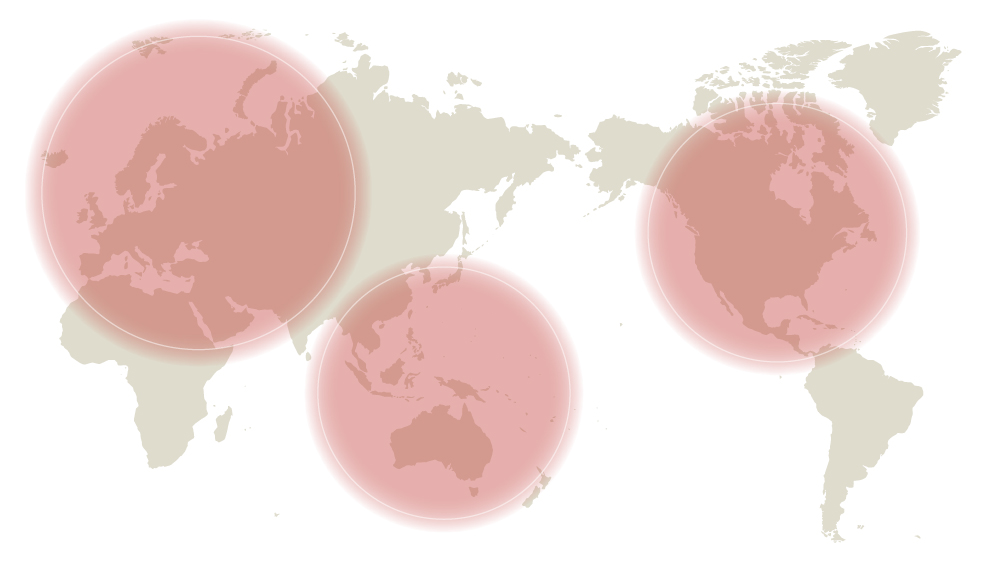
Development of our DAC business
In addition to supplying DAC systems, KHI is also developing a CCUS service business using our DAC technology in collaboration with energy companies and other partners.
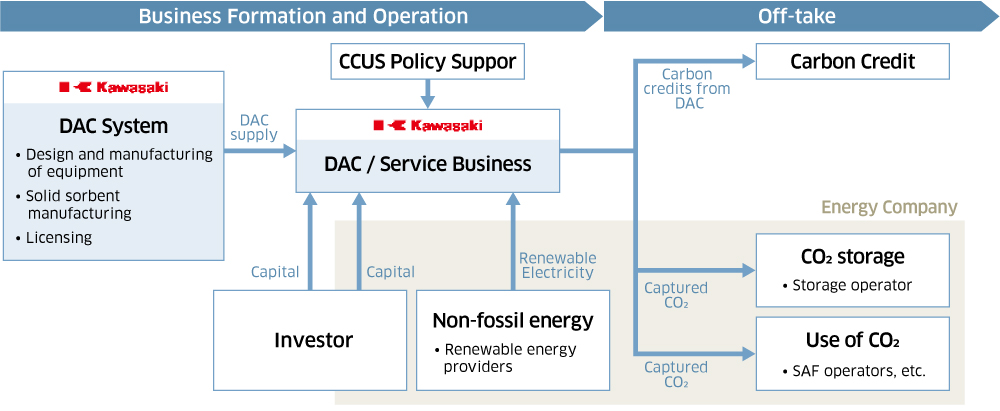
* CCUS: Carbon dioxide Capture, Utilization and Storage
Our DAC business outlook
Started around 2025, aiming for a business scale of approximately 50 billion yen in 2030
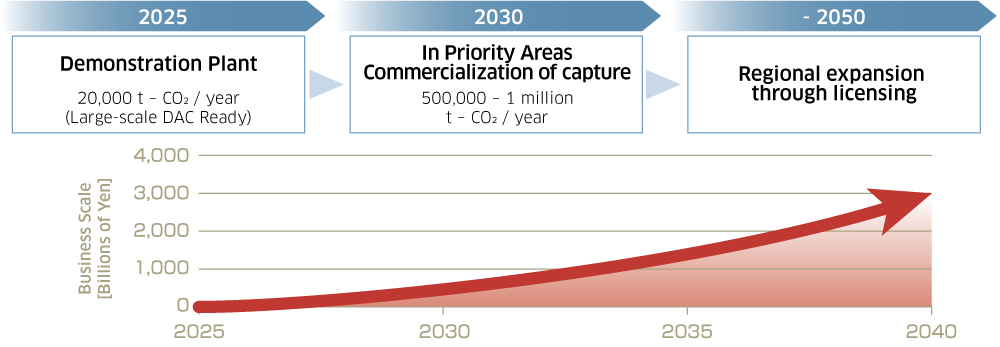
Our DAC business
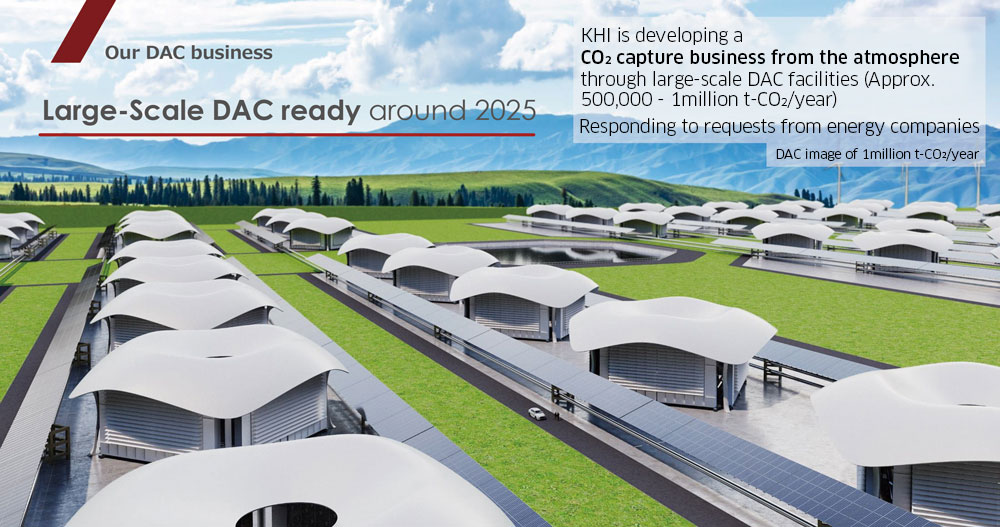
Large Scale DAC Facility Development
We aim to demonstrate a facility with approximately 20,000 t - CO2 / year capacity in 2025
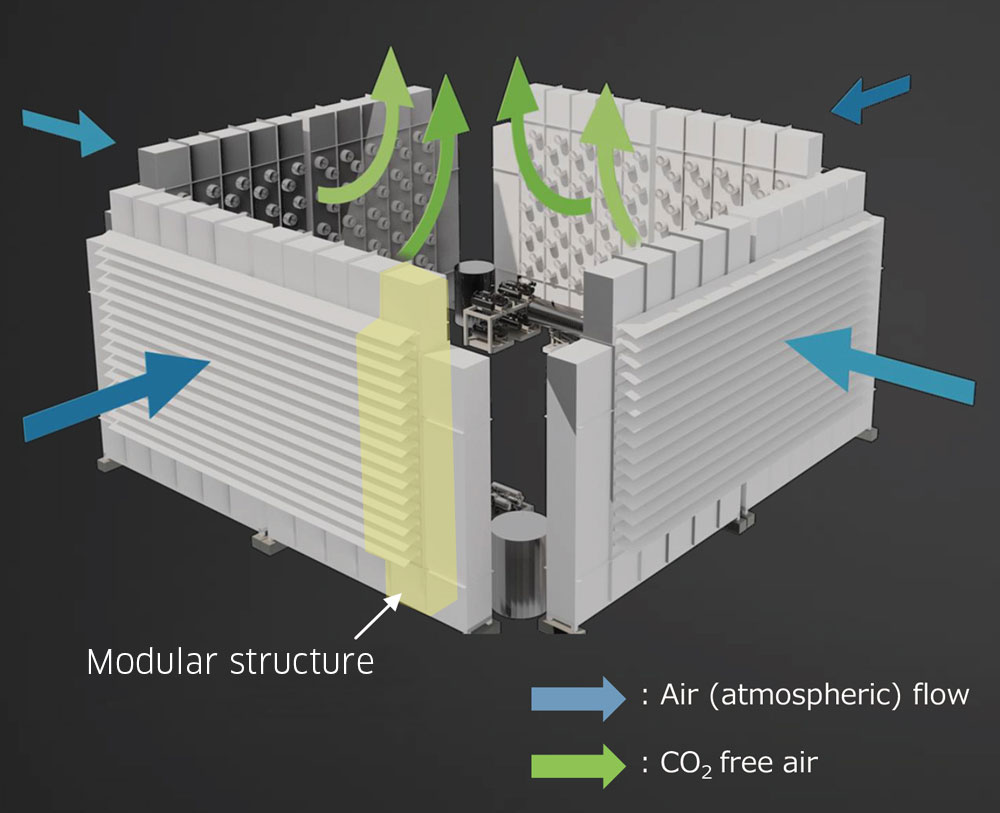
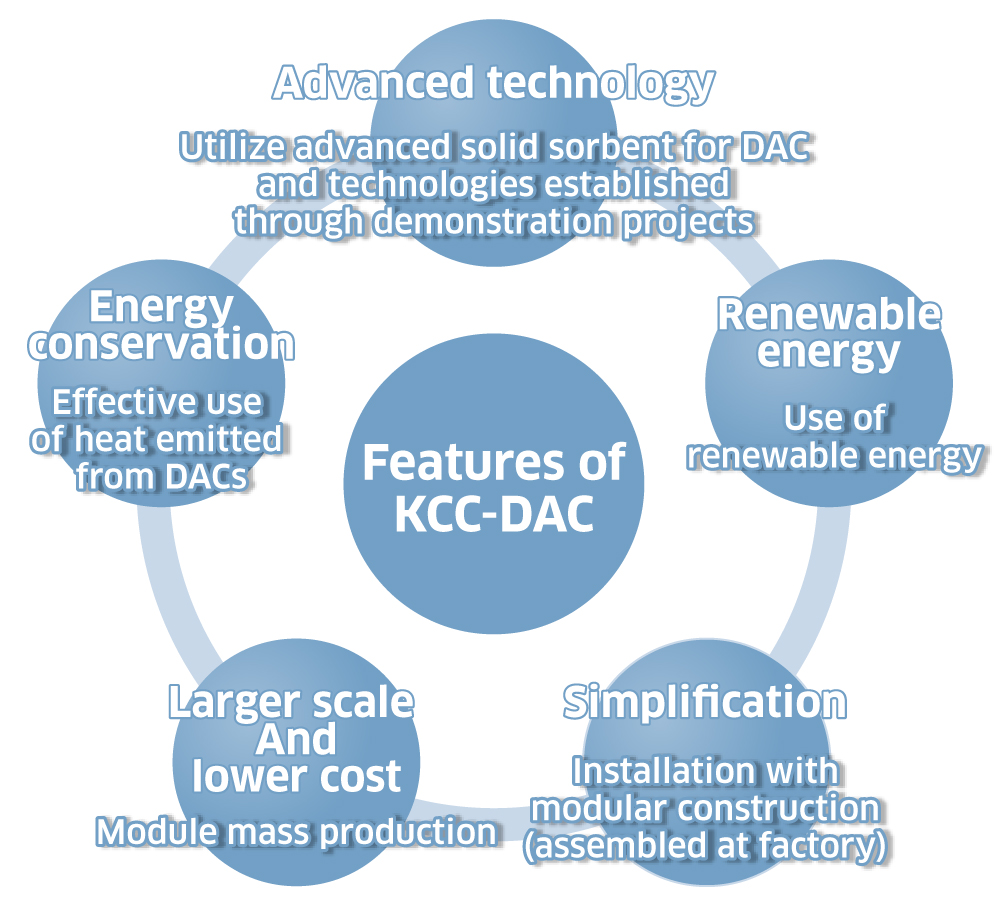
* KCC : Kawasaki CO2 Capture
Hydrogen-Powered COROLLA equipped with our “ CO2 solid sorbent ”
Challenges to carbon negatives
- Toyota Motor Corporation launched a new technology challenge to "capture CO2 the more you drive" in the final round of Super Taikyu Series 2023 held at Fuji Speedway on November 11-12
- KHI supports and cooperates with this challenge and provides CO2 adsorbent
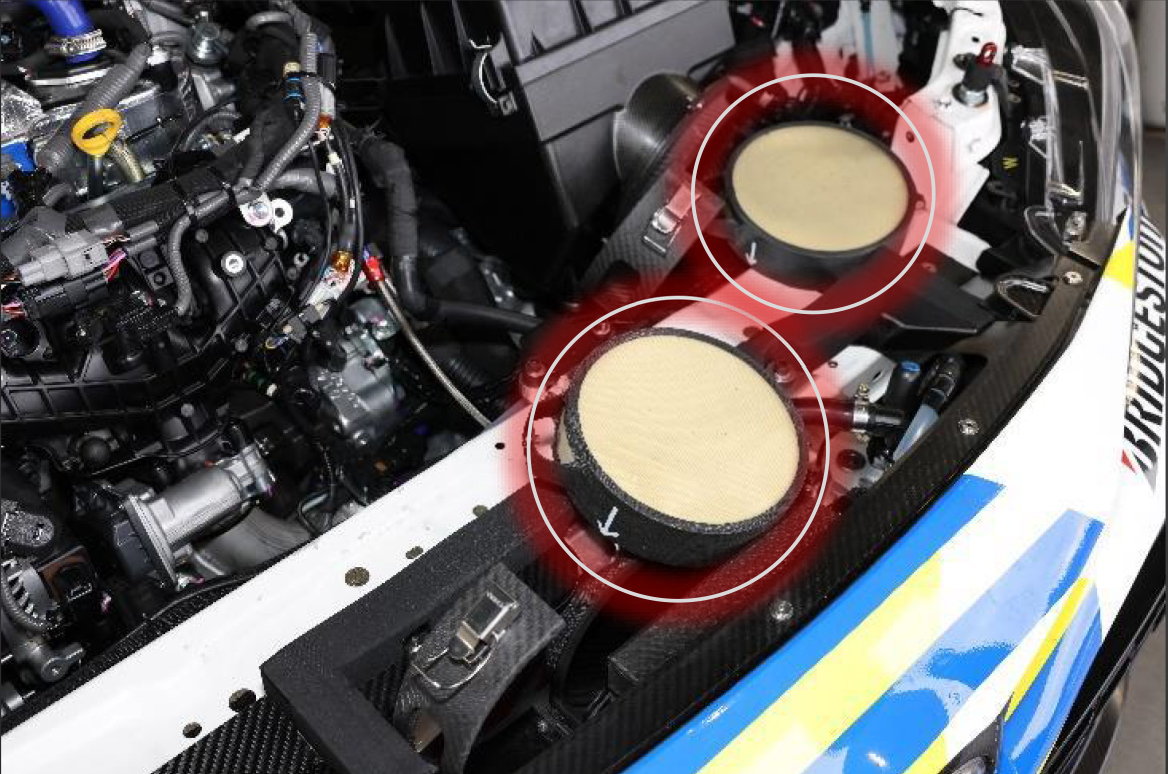
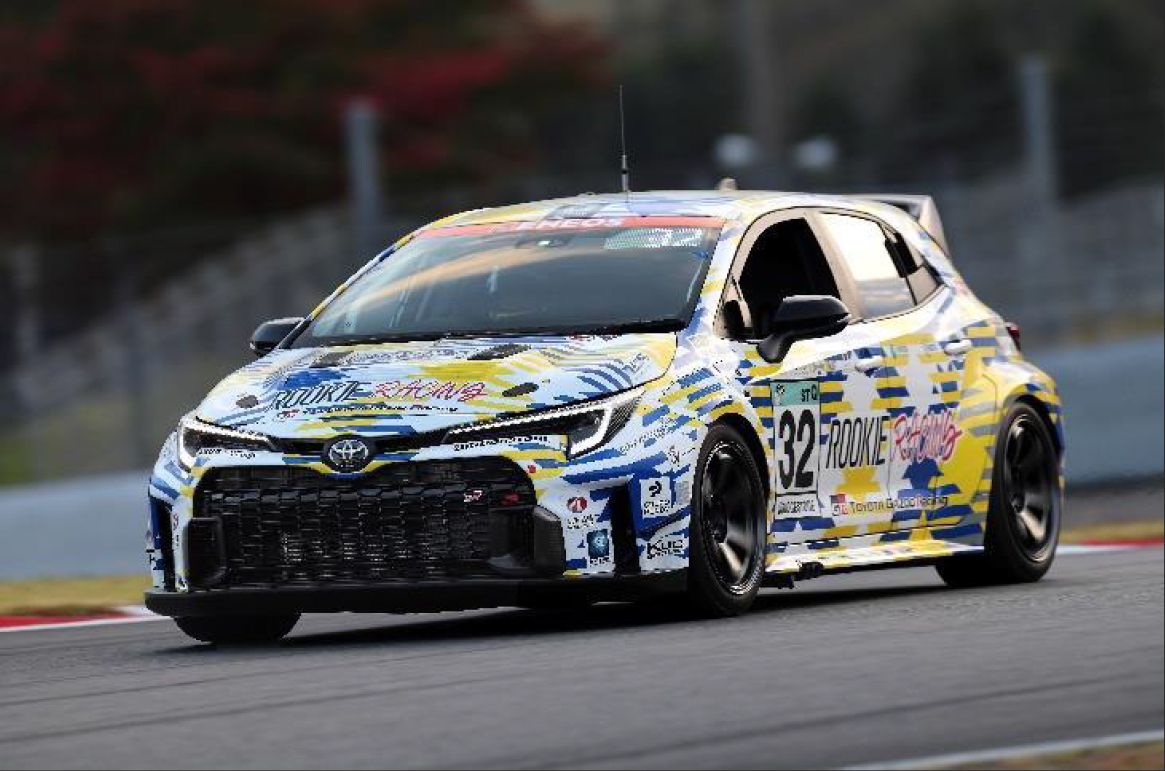
Joint Development with MODEC
KCC System has the potential to reduce the energy needed for CO2 separation in FPSOs, which require more energy for crude oil production, thereby enhancing overall energy efficiency of FPSO operations.
In August 2024, Kawasaki signed a Memorandum of Understanding (MOU) with MODEC Inc. for the joint development of a carbon capture facility designed to process gas turbine exhaust on FPSOs. As part of this collaboration, Kawasaki and MODEC conducted technology evaluation programs for the solid sorbent employed in Kawasaki’s CO2 capture technology called “Kawasaki CO2 Capture (KCC).”
KCC employes a solid sorbent with an amine coating applied to the surface of a porous material. This innovative design enables CO2 desorption using low-temperature heat sources, such as low-grade waste heat, significantly reducing the energy requirements of carbon capture facilities. Additionally, the KCC Moving-bed system circulates the solid sorbent to facilitate continuous CO2 recovery, making it highly suitable for large scale carbon capture operations and enabling compact system design, which ensures potential applicability for the use on FPSOs.
As part of the current evaluation program, we plan to measure and assess the absorption performance and degradation rate of the solid sorbent through exposure tests using simulated gas compositions that replicate the exhaust gas of gas turbines on FPSOs.
Based on the results of this evaluation program, starting this fiscal year, we aim to advance the development of processes tailored to the exhaust gas properties for FPSOs, minimize equipment footprints to accommodate the limited loading areas on FPSOs, and optimize machinery design for offshore operations, particularly with regard to performance under wave-induced motion.

Our CO2 capture technology is used in various ways Contributing to the realization of carbon neutrality
Contact
If you need more information about our business,
please feel free to contact us.
Tel. +81-3-3435-2267





